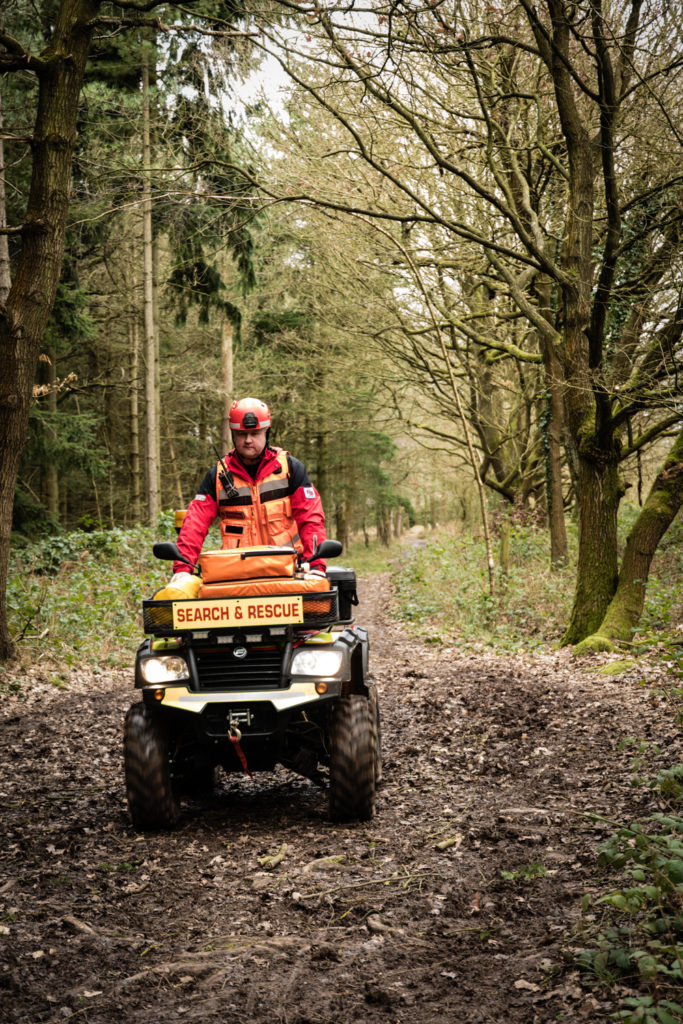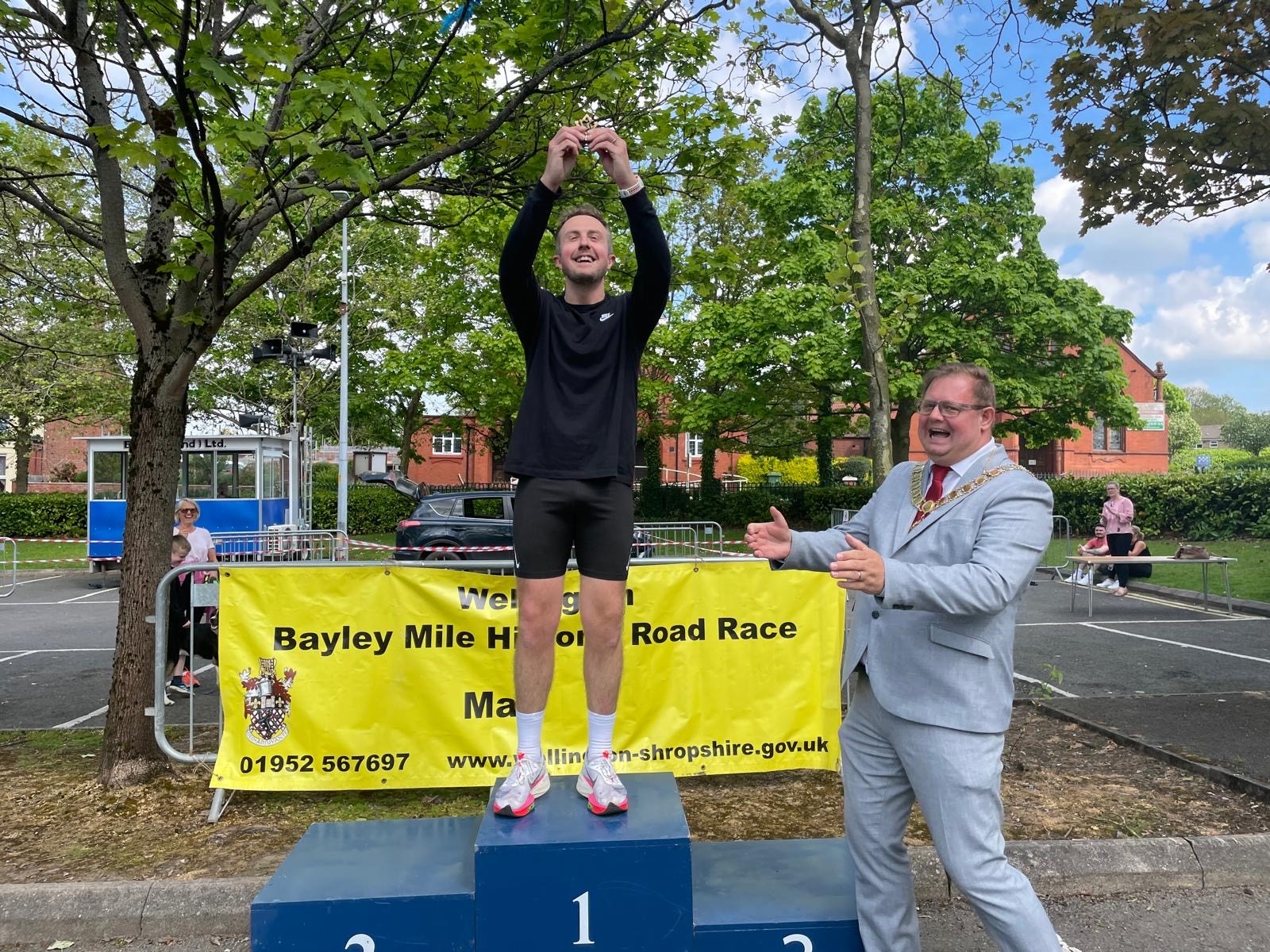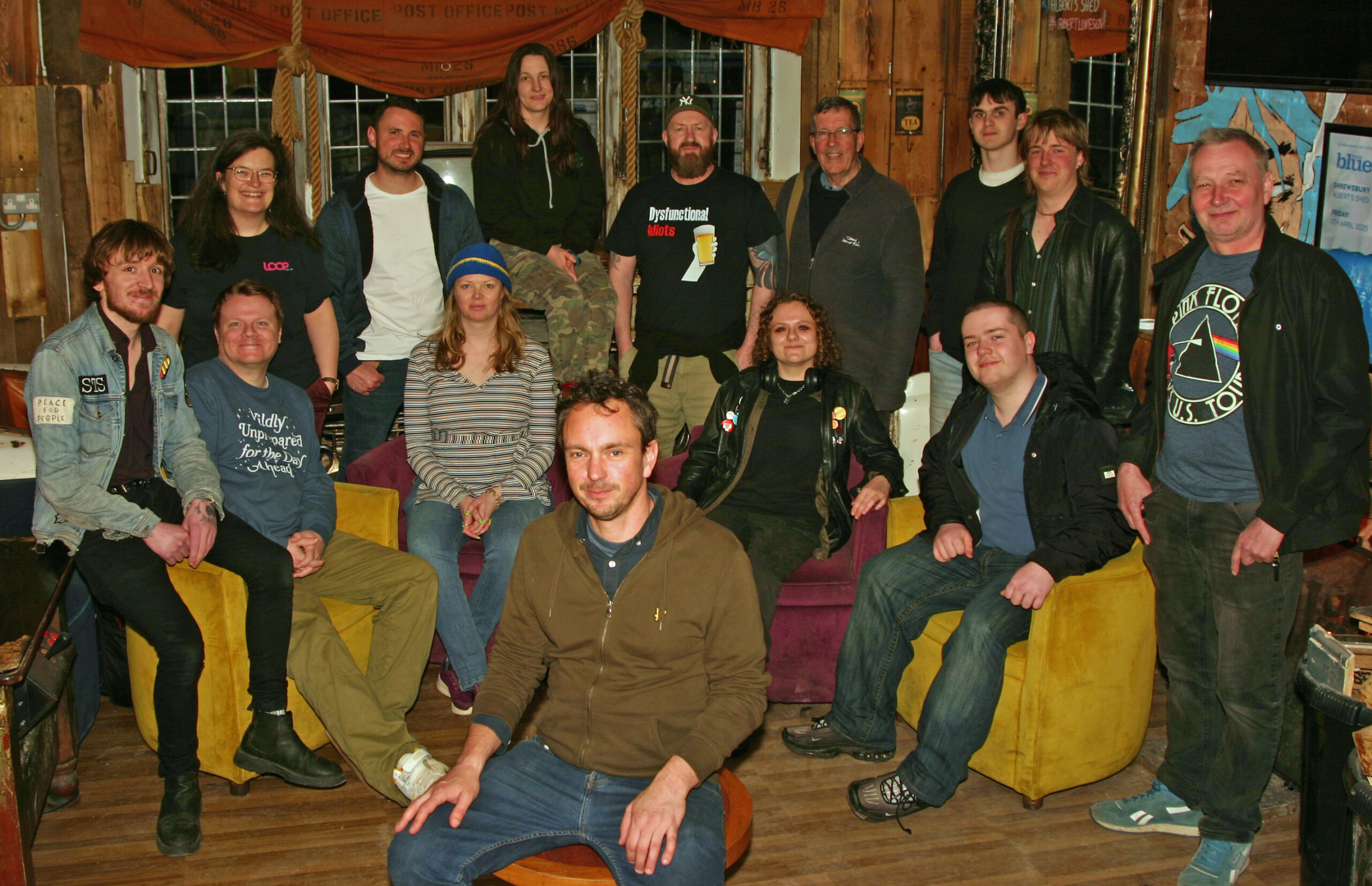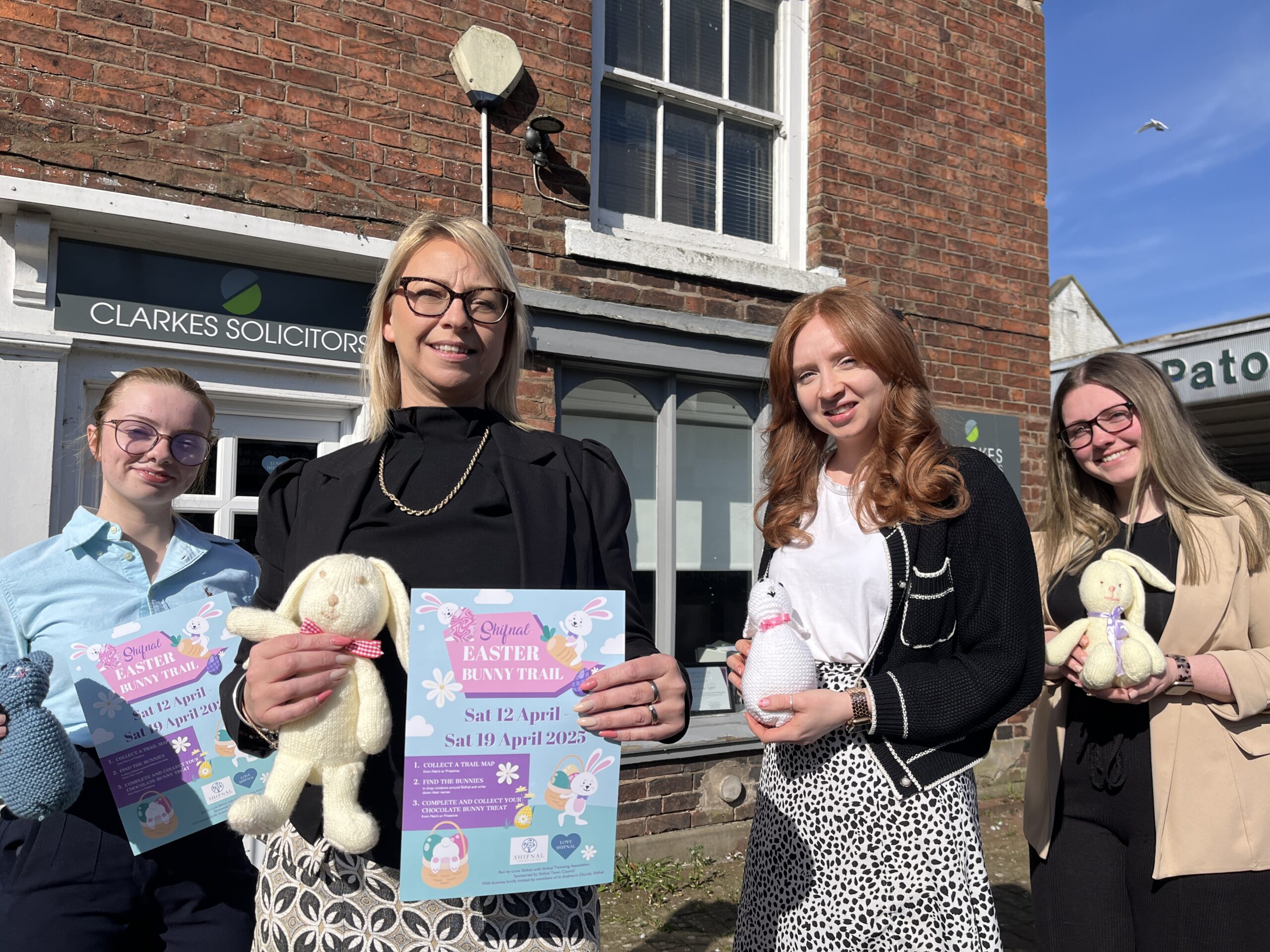A Bridgnorth-based charity which literally saves lives, has received a special honour. Neil Thomas reports.
Annie is dying, but doesn’t know it.
It is cold, crisp and moonless, an hour after midnight on a Wednesday in autumn. And 83-year-old Annie has been missing from home for 48 hours. She has advanced dementia and wandered off when her husband popped out for food.
The police request assistance. The Bridgnorth-based voluntary group West Mercia Search and Rescue (WMSR) springs into action. Members are paged to converge on an area near Annie’s home and the control centre studies maps and satellite imagery of the area to come up with a deployment plan for when they arrive.
Foot-teams search a small wooded area where she may have fallen. There is a footpath through fields towards the River Severn, so that area is pinpointed as a high priority for bankside-teams and quad-bikes. The Police helicopter has been over but had trouble seeing through thick undergrowth.
WMSR deploys a 4-person bankside team, complete with flotation vests and safety kit. Quad-teams go out with medical kit.
Hours pass and numbers swell. Dozens of searchers are now out, a command-vehicle running a secure radio network and a response vehicle waiting with more medical kit.
One of the quad-riders spots a break in reeds and investigates. He sees a clear path down to the riverside and trampled ground – and discovers Annie stood up to her shins in the icy river. She’s made herself at home in the reeds – thinking she was in her kitchen making dinner. She’s freezing cold and grey, but has no idea of the danger she’s in.
She orders the rescuer out of her ‘house’. He steps back to avoid alarming her and alerts control on his radio. He softly introduces himself. Annie’s confused and scared.
Other teams hear the radio and scramble to get medical kit to the scene. The police are alerted and despatch a unit to meet the WMSR controller. Bankside teams arrive and position downstream, ready to deploy safety kit. The medical kit is set up.
Twenty vital minutes pass in which the WMSR man has slowly built a rapport with Annie. He loves the smell of her cooking but needs her to come with him to get warm. Less fearful now, she trusts him and eventually agrees to walk out of the water.
Medics assist, an ambulance has arrived and police are on the scene.
WMSR members make sure Annie is calm and carried out safely before handing over the case to the emergency services.
The volunteers pack up, clean down the kit and return to base, or home in some cases.
They grab a shower, breakfast and coffee . . . and head off to work.
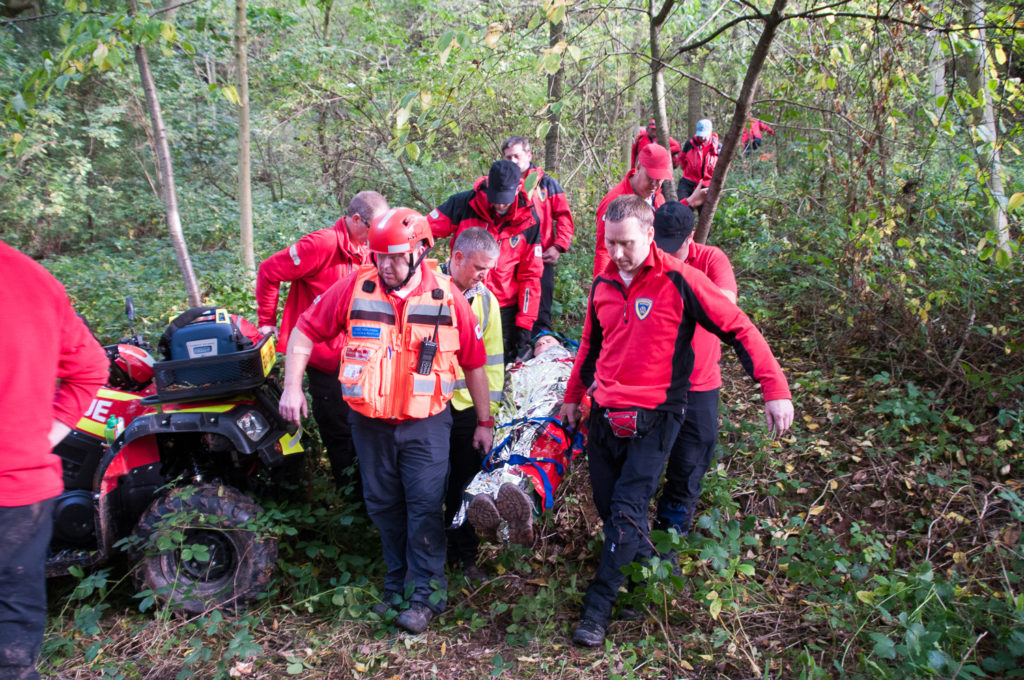
This group of 80 volunteers are men and women of all ages and from all walks of life. They work in offices, shops, schools, factories and fields. They work from home and on the road. But they have one thing in common – they care.
If you are tempted to doubt the importance of their work, it is worth considering that of the 1.2million people who live in the West Mercia area of Shropshire, Herefordshire and Worcestershire, tens of thousands go missing every year. Some are considered at high-risk, including children, the elderly and frail and people with conditions such as dementia, autism, depression and other mental health issues and those dependent on medication that they don’t have on them. Hikers or mountain bikers who have failed to return from remote areas or anyone not dressed or equipped for bad weather in remote rural locations, are also at risk.
WMSR performs a vital service in supporting the frequently over-stretched emergency services.
And earlier this year, this wonderful service was officially recognised with one of the nation’s highest honours – the Queen’s Award for Voluntary Service, one of the last to be awarded before Her Majesty’s death.
In fact, this is the highest award a local voluntary group can receive in the UK and is equivalent to an MBE.
From its base, on the Stanmore Industrial Estate, the group provides an on-call team of specialists to assist the emergency services in missing-person search and flood rescue across the West Mercia region. But their work also covers preventative water-safety education through the Home & Dry course, which has been taken by tens of thousands of people worldwide, and riverside safety patrols over Christmas and New Year.
The Queen’s Award for Voluntary Service aimed to recognise outstanding work by local volunteer groups to benefit their communities. It was created in 2002 to celebrate The Queen’s Golden Jubilee.
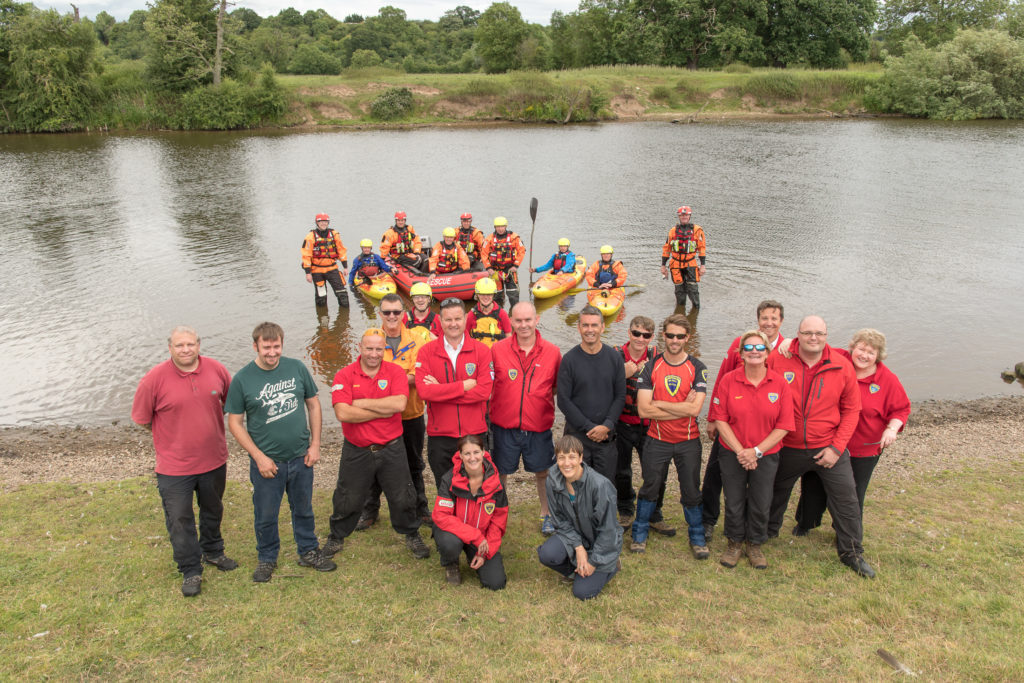
WMSR chairman Andy MacAuley, says, “Every member of the charity has sacrificed a significant amount of their time and money to help others in the community, and this award from Her Majesty was a humbling recognition of those efforts.
“Much of our work is unseen, due to the nature of those we help, but we thank the public for their support. We could not train, equip and maintain our volunteers without that support.”
Becoming a WMSR volunteer is a major commitment in time and money.
Andy explains, “As we are a charity, all prospective members are expected to contribute towards the fundraising. We don’t get any money from the government, and we need to raise the £40,000 a year it costs to run the team by doing sponsored events, grant writing, talks, collections and appeals.”
All new recruits must, as their core role, be a foot-team member. Training is one evening a week, for 3 to 4 hours, plus occasional weekends.
All team members need to learn key skills, taught in-house for those that do not already have them. They include navigation, VHF communication, First Aid, search techniques and rescue skills.
Additional skills in water rescue, for those members interested, follows basic training. “Only members who commit to fundraising, land-search and team operations progress to water rescue since it requires a lot of team commitment and money.”
Andy adds, “You don’t need to be super-strong or super-fit to join the team. Not every role is for everyone so we are looking for a range of abilities, backgrounds and strengths. But you do need to be able to walk off-road for a few hours safely, perform chest-compressions for 2 minutes and work as a team member.”
Training sessions typically take place around Bridgnorth, Wyre Forest, Kidderminster and Stourport.
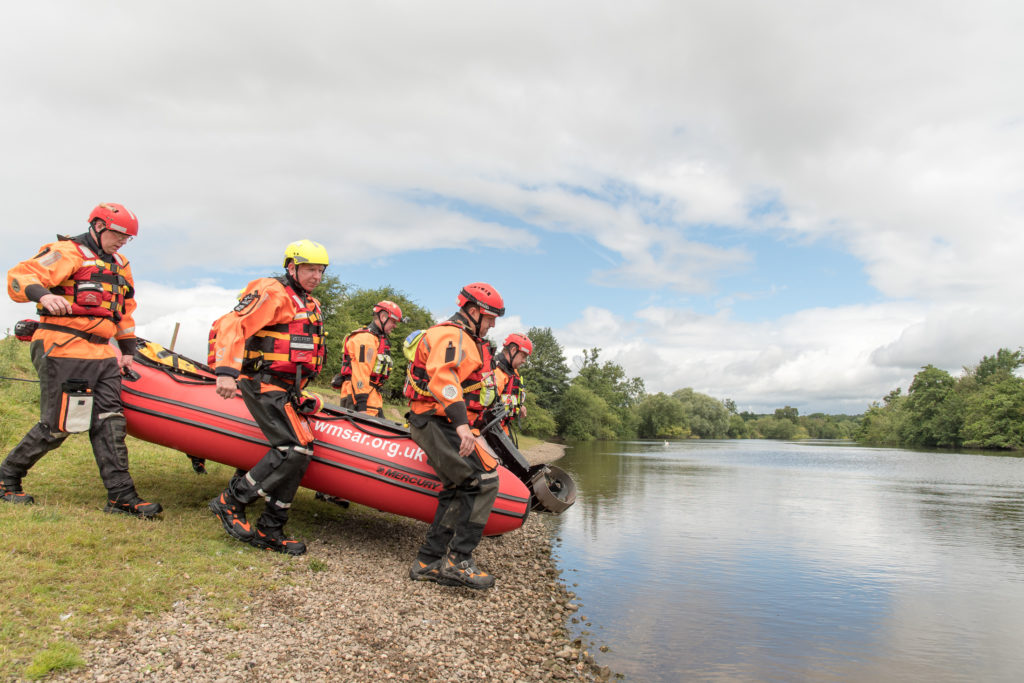
“An operational member of the team needs to factor in time for training, call-outs at all times of day and night, maintenance of personal and team equipment and a minimum of 4 fundraising days a year. It can add up! The average member gives over 200 bookable hours per year.”
Andy says the wider public can play their part through donations, organising sponsored events, getting their company involved and spreading the word about the charity.
“Our volunteers give their time, money and dedication to help save lives. When someone vulnerable goes missing it’s an emergency and we have to be ready to respond in any weather, at any time.
“It can be very difficult, and without proper training it can be very dangerous. We need to give our operational members the best training, safety kit and specialist equipment so that they can do their job safely.
“But that costs thousands of pounds every year, and we lose talented members because they can’t afford to pay for things themselves.”
The training course costs £400, for instance, with a top-up course another £200. Medical kit costs £1,500 and rope kit £350. A dry suit costs £405 and life vest £127. A safety helmet is £65 and the list goes on. Helping to meet some of those costs can make a huge difference to the organisation.
Police and Crime Commissioner John Campion, who supported the group for its Queen’s Award, is in no doubt as to its value.
He says, “The volunteers do an outstanding job, protecting the most vulnerable and providing a professional service across our communities. They have a positive relationship with the police service and help to reduce the workload of officers. I’d like to thank them on behalf of the public for everything they do.”
Visit westmerciasar.org.uk for more information.

